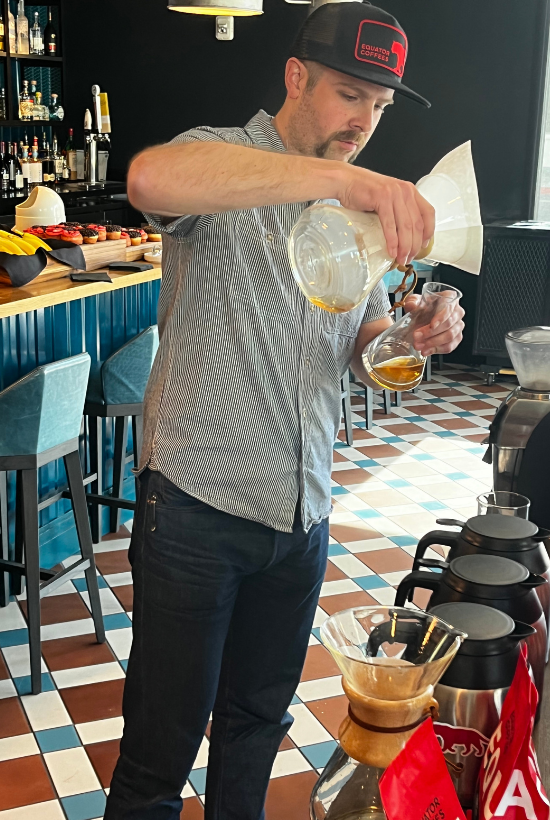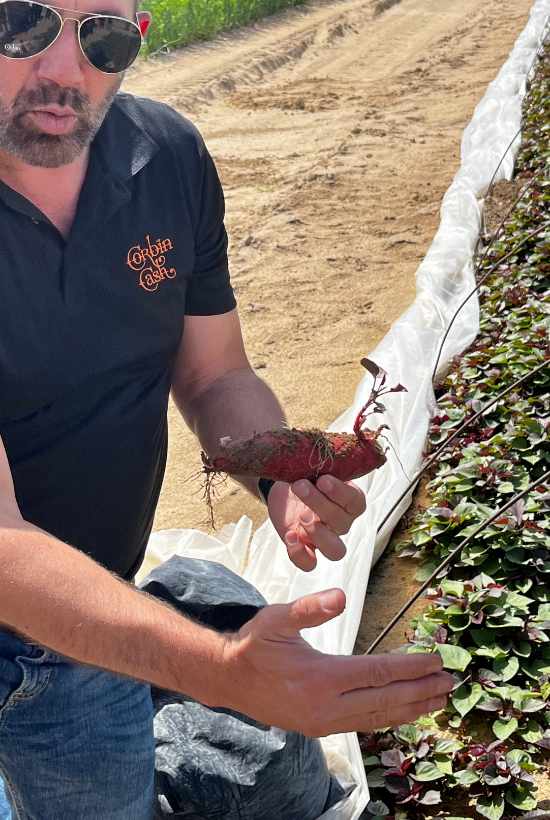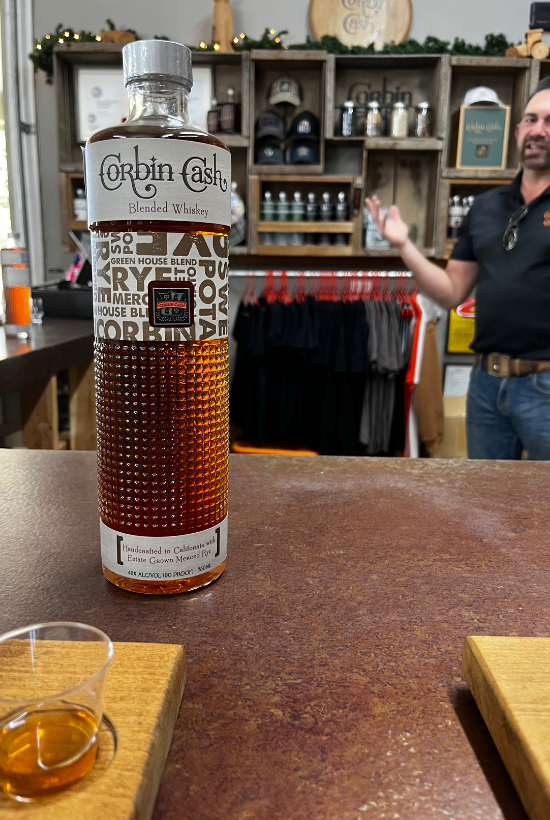Because we’re in Taurus season — that astrological symbol of sensuality, good cooking (and eating), the arts, farming — I’m going to tell you about my recent road trip to Merced.
“You’re going to Merced?” a friend asked, a tad incredulous. “There’s nothing there.”
Actually, a little bit of “nothing” was exactly what I needed. Once I wound my way out of rush-hour L.A. traffic, it was four hours on the road — four hours of watching cows graze pastures, wildflowers wave in the wind, mountain ranges come and go — before rolling into Merced after sundown. With just 83,000 residents, this Central Valley town is known for being the “gateway to Yosemite.” Yet thanks to the arrival of University of California, Merced in 2005, today it is one of the fastest developing towns of its size in California. It remains an area rich with history and agriculture, and it has a new message for out-of-towners: Don’t sleep on Merced.
Here are five reasons to embrace this town named for “Our Lady of Mercy.”
Bread is a full course
Let’s start with the bread.
Is there anything that has the ability to be both the most basic and most scrumptious thing in the world? Flour, water and yeast can be transformed into a run-of-the-mill biscuit or the kind of masterpiece that will have you dreaming about it for the rest of your life. The dreamy stuff is the kind of bready goodness that Executive Chef Quentin Garcia is serving at his upscale Rainbird restaurant inside the historic El Capitan Hotel.
I arrived in town just after Rainbird closed on a Friday night, but all I kept hearing about from fellow visitors was the exquisite five-course tasting menu at Rainbird. “Oh, and the bread! The bread is its own course,” one after the other person said, their eyes rolling back in their heads as they savored the memory.
I was greedy with curiosity. “What does it taste like?” I asked.


“It’s just a special kind of bread,” Emily said. “It’s sticks with you. It lives on your tongue for a while.”
Jamie’s take: “It’s crispy and crunchy, but you bite into it, and then it melts in your mouth like a cloud, a bread cloud.”
The next day was filled with activities – a coffee tasting, a farm tour and picnic, a market visit, but the anticipation for dinner and its bread loomed large, a yearning at the back of my throat. When dinner finally rolled around, I learned that, no, the bread would not be served first. My disappointment dissipated as the first courses — a white onion macaroon, fermented potato mousse, a creamy, nutty risotto — appeared.
I was deep in conversation when The Bread arrived. The table chatter turned to barely contained squeals. Our waitress placed down a plate stacked with thickly cut, grilled slices of a rye and farro loaf speckled with salt crystals. She explained each dip – a cultured sunflower butter called “Bee Happy,” a ricotta, a golden raisin marmite with honeycomb. Opting for the golden raisin marmite, I spread it onto my warm, crusty slice and took a bite. The crunch was audible and deeply satisfying. As my tongue held onto buttery flavors meeting raisin-honeycomb ones, I met the cloud — the bread’s airy, magical center.
“How is it?” my tablemates ask. I collapsed a little over my plate and held up my hand because I didn’t have any new words to add to their previous descriptions.
“It’s perfect,” I finally squeaked out.
Old + New World charm
We stayed at El Capitan Hotel, a 1920s architectural gem that features a historically preserved wing and a newly constructed extension. Located on Main Street in downtown Merced, the hotel, a Joie de Vivre Hotel by Hyatt, is a short walk to nightlife, a park, cafes and shops and the expansive Multicultural Arts Center.


The hotel’s merging of contemporary and historical styles feels seamless. Some rooms offer a flashback in time —wallpaper with scenes invoking early Merced, antique telephones and record players —while others give off a smoky contemporary vibe: crisp white linens over ebony bed frames, moody lighting and geometric textiles.
For a boutique hotel, there are ample and lushly designed lounge and study areas, plus three eateries (Rainbird, Native Son and EC), a lovely courtyard, a generous-sized gym, ballroom and drawing room.
Added bonus: El Capitan is dog-friendly!
Gourmet coffee + brioche doughnuts
One of my favorite experiences was a drip coffee tasting held at Native Son, the hotel’s café named after a famous climbing route in Yosemite National Park.
Tyler Santoro, owner and lead technician of Stellco, a coffee equipment sales company, and former team member for Equator Coffee, led us in a pour-over tasting of Equator Coffees that hail from the world’s three primary coffee growing regions: Ethiopia, Sumatra and Colombia. The coffees were distinct and delicious, and I appreciated Santoro’s down-to-earth approach to the brew. “I think coffee should just be fun and approachable,” he said.


When Tabitha, a baker for Rainbird, brought out trays of plump strawberry and chocolate brioche doughnuts for “palate cleansers” between coffee,” the fun was kicked into high gear.
Rockin’ nightlife
When staying at El Capitan, nightlife is convenient. Mainzer, just a few steps away, has it all — a concert hall, a cinema filled with living room sofas, a restaurant with full menu and drinks and even a game room with foosball, board games and ping pong.
On the nights I was in town, Rock Roulette, Las Vegas’ first interactive rock cover band (formerly Blue String Theory), was in concert. The band used a “casino prize wheel” for the audience to spin to select groups of songs, a mélange of hits covering AC/DC, Bon Jovi, Led Zepelin and other greats.
Farm-to-glass sweet potatoes
I’m from Louisiana, where we pride ourselves on our storied candied yams and sweet potato pie, but the trip to Merced was my first experience on a sweet potato farm — as well as a distillery that turns sweet potatoes into whiskey.
David Souza led us on a tour of his distillery, Corbin Cash (named after his son), a tasting of sweet potato spirits, his family’s farm and greenhouse hotbed, a barrel house and the packing facility. During the tour, we learned everything we never knew we needed to know about sweet potatoes, and Souza, whose family has grown sweet potatoes and rye on their farm since 1917, put the sweet potato vs. yams debate to rest: “There are no yams grown in the U.S.,” he said. “What we see at the grocery store that’s called yams are really sweet potatoes.”


Souza says the San Joaquin Valley produces the perfect conditions for raising the best sweet potatoes. While the majority of the crop is sold as produce (a staple whose demand increased exponentially during the pandemic), Souza’s sweet potato spirits are award-winning. My favorite, the barrel reserve sweet potato liqueur, boasts notes that stir up my sweet potato pie: maple, brown sugar, clove and vanilla.
From fine cuisine and spirits to music and other delights — including decadent Blackwood Brittle at Bobby’s Market and vintage toys and old Hollywood nightgowns at Merced Antique Mall — Merced offered plenty of sensory experiences, which was right up my alley. Did I mention I was born a Taurus baby?
Cassandra Lane is Editor-in-Chief of L.A. Parent.


























